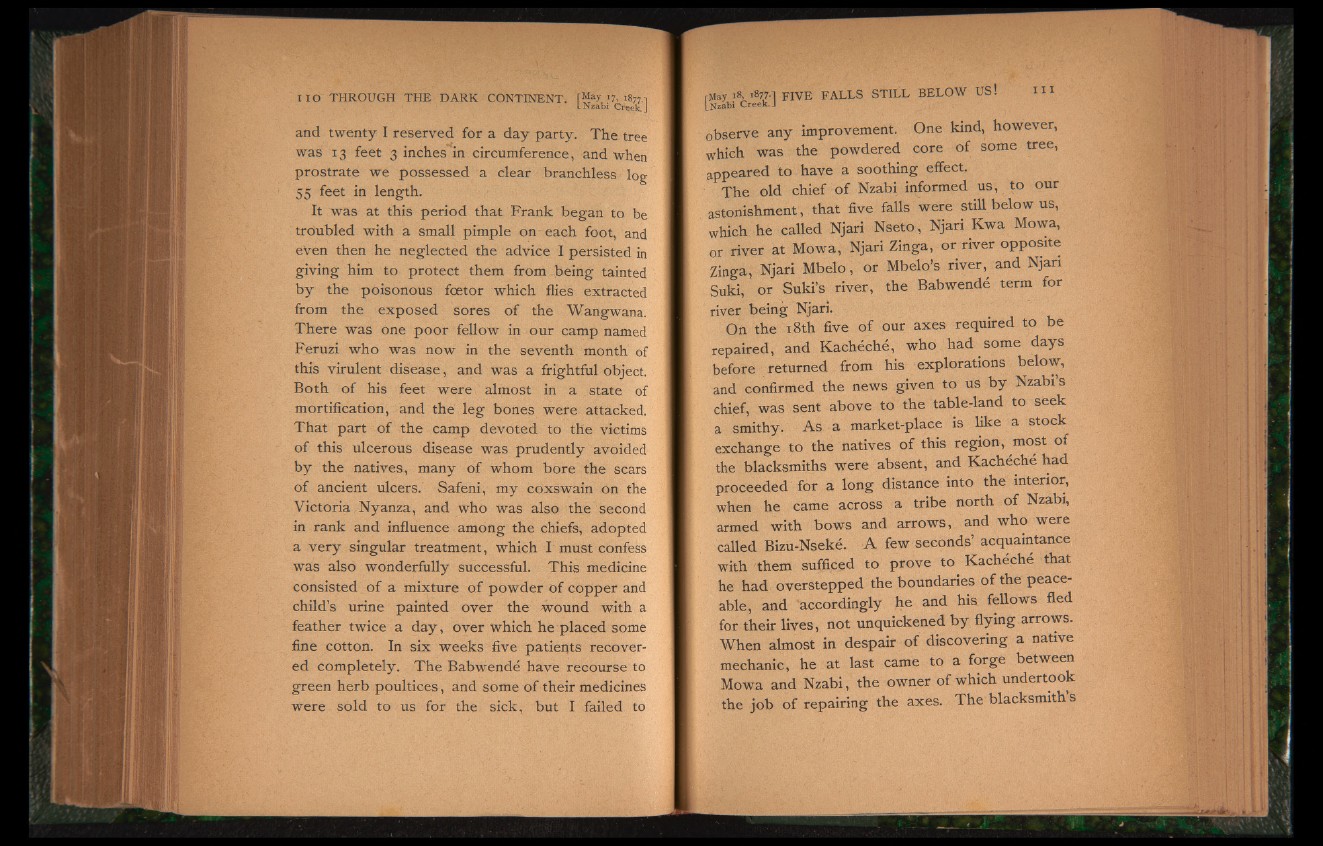
and twenty I reserved for a day party. The tree
was 13 feet 3 inches**in circumference, and when
prostrate we possessed a clear branchless log
55 feet in length.
It was at this period that Frank began to be
troubled with a small pimple on each foot, and
even then he neglected the advice I persisted in
giving him to protect them from being tainted
by the poisonous foetor which flies extracted
from the exposed sores of the Wangwana.
There was one poor fellow in our camp named
Feruzi who was now in the seventh month of
this virulent disease, and was a frightful object.
Both of his feet were almost in a state of
mortification, and the leg bones were attacked.
That part of the camp devoted to the victims
of this ulcerous disease was prudently avoided
by the natives, many of whom bore the scars
of ancient ulcers. Safeni, my coxswain on the
Victoria Nyanza, and who was also the second
in rank and influence among the chiefs, adopted
a very singular treatment, which I must confess
was also wonderfully successful. This medicine
consisted of a mixture of powder of copper and
child’s urine painted over the wound with a
feather twice a day, over which he placed some
fine cotton. In six weeks five patierits recovered
completely. The Babwende have recourse to
green herb poultices, and some of their medicines
were sold to us for the sick, but I failed to
observe any improvement. One kind, however,
which was the powdered core of some tree,
appeared to have a soothing effect.
The old c h i e f of Nzabi informed us, to our
astonishment, that five falls were still below us,
which he called Njari Nseto, Njari Kwa Mowa,
or river at Mowa, Njari Zinga, or river opposite
Zinga, Njari Mbelo, or Mbelo’s river, and Njari
Suki, or Suki’s river, the Babwende term for
river being Njari.
On the 18th five of our axes required to be
repaired, and Kacheche, who had some days
before returned from his explorations below,
and confirmed the news given to us by Nzabi’s
chief, was sent above to the table-land to seek
a smithy. As a market-place is like a stock
exchange to the natives of this region, most of
the blacksmiths were absent, and Kacheche had
proceeded for a long distance into the interior,
when he came across a tribe north of Nzabi,
armed with bows and arrows, and who were
called Bizu-Nseke. A few seconds’ acquaintance
with them sufficed to prove to Kacheche that
he had overstepped the boundaries of the peaceable,
and accordingly he and his fellows fled
for their lives, not unquickened by flying arrows.
When almost in despair of discovering a native
mechanic, he at last came to a forge between
Mowa and Nzabi, the owner of which undertook
the job of repairing the axes. The blacksmith s